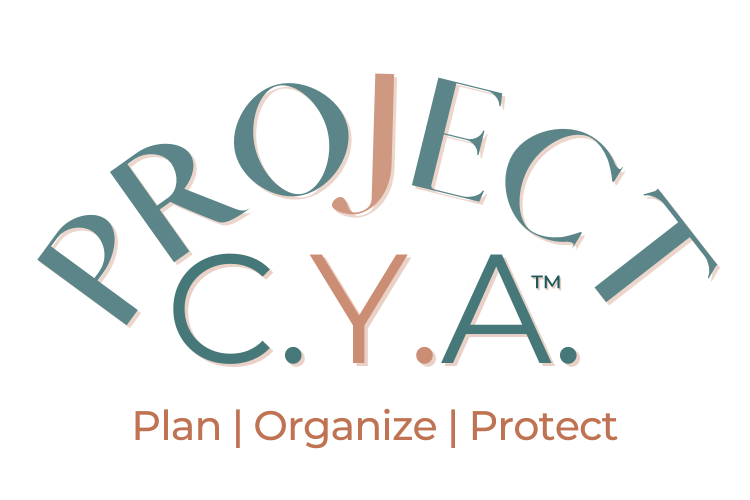Guest Episode: Building a Successful Continuity Plan
I joined Shannon Weinstein to address a topic that's often avoided but is of paramount importance for every business owner – contingency planning.
Planning for the Unexpected: Contingency Planning
Nobody wants to dwell on worst-case scenarios in their businesses, but envisioning these situations can be an empowering tool. It's about maintaining control, security, and peace of mind even in the face of unexpected events.
This episode is all about keeping control and shifting our perspective from pessimism to proactive project management.
Decoding the Jargon: What is Contingency Planning?
It's about having a "Plan B" in place, a strategy to pivot and take action if things veer off course from the original plan.
Contingency planning, often seen as complex and advanced, can be broken down into manageable pieces. Julie simplifies it for entrepreneurs, highlighting key terms and their implications. Here are the three main planning components:
Contingency Planning: The umbrella term for proactive plans to manage deviations from the original best-case scenario.
Continuity Planning: Focuses on maintaining the status quo, ensuring operations continue in case of your absence, whether due to vacation or temporary leave.
Succession Planning: Addresses any change in roles, responsibilities, or availability in the business. It allows owners to communicate their intentions for the future, ensuring smooth transitions.
Contingency planning isn't just a theoretical concept; it's a practical tool that empowers you as a business owner. From delegation strategies to financial preparedness and aligning with your mission, vision, and values, every step you take brings you closer to a more resilient and thriving business.
From Vacations to Unforeseen Circumstances: The Delegation Playbook
One of the cornerstones of contingency planning is delegation.
When you're the heart of your business, passing tasks to others can be a challenge. To make this transition smoother, I recommend:
Developing an organizational chart to visualize the business structure.
Creating a "Business Handbook" to document all aspects of your business, including financial details.
Specifying your emergency contact for the business to ensure clear communication during unexpected events.
Regularly reviewing and updating your plans as your business evolves.
Bridging the Financial Gap: Financial Preparedness in Contingency Planning
Beyond operational strategies, financial preparedness is crucial.
You need to check financial considerations, such as:
Ensuring cash reserves and emergency funds are in place.
Documenting expenses and potential inefficiencies for better financial management.
Clearly communicating the value and assets of your business to potential successors or family members.
Establishing a system for secure storage of critical financial information.
Tailoring Contingency Planning for Solopreneurs
Solopreneurs face unique challenges in contingency planning due to their central role in the business. However, even for one-person operations, planning is crucial.
Here are some great tips to get started:
Start by envisioning worst-case scenarios and listing potential triggers.
Create a delegation playbook to outline how tasks would be managed in various scenarios.
Establish relationships with peers in your industry for potential client handoffs during emergencies.
Use templates and tools to document processes, contact information, and financial details.
Embrace the Future with Confidence
While it's uncomfortable to plan for unexpected events, the empowerment that comes with contingency planning is invaluable.
Shifting the perspective from pessimism to proactive project management can protect your business, your clients, and your legacy. With the right strategies in place, you can confidently navigate any challenge that comes your way.
Remember, your business is more than just a solo venture—it's a network of relationships, tasks, and financial responsibilities.
By embracing contingency planning, you're setting yourself up for success and ensuring that your business thrives even when you're not at the helm. Start envisioning and documenting your business's future today to empower yourself and your business's legacy.
************
Resources and Links mentioned in this episode:
🔗 Grab your FREE risk-assessment resource: https://projectcya.com/start
🔗 Browse all episode show notes: https://www.juleeyokoyama.com/blog
👋 CONNECT WITH JULEE:
Instagram: https://www.instagram.com/juleeyokoyama/
LinkedIn: https://www.linkedin.com/in/julee-yokoyama/
YouTube: https://www.youtube.com/@juleeyokoyama/
Work with Julee: https://juleeyokoyama.com/
Love this post? Pin the graphic below! 💚
I’m Julee. I help service-based business owners organize and protect their operations for more peace of mind, efficiency, and business growth.
Grab the Project C.Y.A.™ Starter Workbook
10 Must-Ask Questions to Begin Understanding Your Business Risk.





